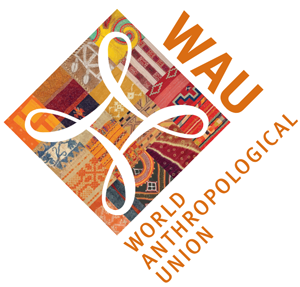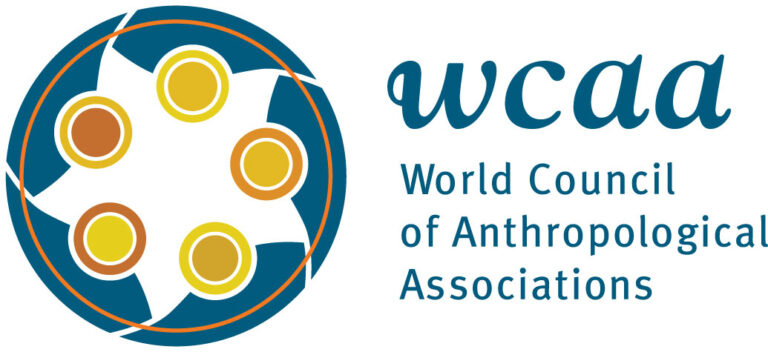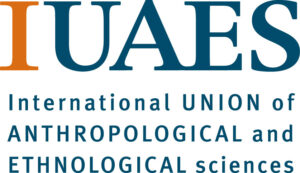Questions for Journal Editors for the Tenth Anniversary of Deja Lu
Interview with Filippo Zerilli, Editor of Anuac, Journal of the Italian Society of Cultural Anthropology , interviewed by Gordon Mathews
Sept. 10, 2021
GM: I was just reading Anuac over the past couple of days, and it looks like a very interesting journal. You’ve got many different languages in there. I thought it was going to be more Italian but mostly it’s not, which is interesting.
FZ: That’s one of the main intentions, to be an international and multilingual journal; it’s really an important issue from the beginning, for us, so we have those different languages, not only English and French, and of course Italian but also Portuguese and Spanish. At the beginning of this journal, in addition to Europe the intentional was to cover both Americas, North and South America. This internationalization is very important to us, but also raises problems because we don’t have in the editorial team people who are professional in all those different languages—we have knowledge, but not necessarily knowledge as a mother language. So it’s a risk sometimes when we use different languages that we are unable to check the quality of the language. We’d like to rely on good external linguistic revisions, but it’s very costly to obtain.
GM: And with Anuac, you are open access, and so you may not have a managing editor or somebody who is paid to go over your journal. Is that correct?
FZ: Yes, we are all not paid for that. This is one of the main problems we face, that of financing. We are one of the journals of the Italian Society for Cultural Anthropology. That means that we get some financing from them but not much—we can cover some editing and proofreading, but we don’t have enough money to cover language revisions and we don’t have money to pay the managing editor or to pay the person in charge of web design; we obtained some money to redesign the website, which has been the same for the last five years. We would like to introduce changes but this is not possible. I’ll need to go and ask for money not only from the Society but also from different sources, such as my university department at the University of Cagliari, where I am based. We get some help in terms of infrastructure, so we have site maintenance that is very good. Anuac is on a platform with a number of different open access journals. But we don’t have the money to change anything on the website, even changing a couple of pictures on the website. So everything here is voluntary. Luckily, the colleague who acts as managing editor has good technical skills. But we are facing ongoing technical difficulties. For instance, the new Open Journal System release we recently updated to (version 3.1) presents a lot of new confusing features we are still unable to fully manage!
GM: Why did you decide not to go with a commercial publisher, but to do this the way you’re doing, in an open access journal?
FZ: When we established Anuac in 2012, OJS, Open Journal Systems, the publishing infrastructure we use made open access journals possible, thanks to the Public Knowledge Project who sponsored the software; it was a great economic and political opportunity not to ask a publisher to make a contract, and to be involved in the politics of publishing. I see that in the last five years people are running away from Wiley and other big publishers, they want to renegotiate their contracts because those publishers operate as profit-seeking business enterprises. Colleagues have started to refuse to contribute or act as reviewers for these big publishers without compensation. That’s a very delicate and political issue, of course. If you open your arms to the big publishers, they would probably ask you not to offer your journal for free anymore!
GM: So Anuac is open to anyone who wants to read it, for free: anybody can click on the website and read your articles, is that right?
FZ: Exactly. It’s absolutely free. We don’t even ask for article processing charges. Open access has completely changed the landscape in which we are living in. When I was a student I was so curious about why we had to pay money for scientific research that should be available for everybody, since it has been already paid for by public funding. Open access is really something that we want to affirm and believe strongly in at Anuac. It is indeed a new way to conceive of science and the role science can have in the public sphere.
GM: To introduce Anuac to readers of Déjà Lu, what would you want to tell our readers?
FZ: I want always to emphasize the link between our journal and the Society of Cultural Anthropology in Italy, which is important. But this Society is not our only interlocutor, because we want to have a journal that is able to talk to a global community of anthropologists; so from this perspective we’re very, very happy to be part of Déjà Lu. When we select an article for Déjà Lu, we always think about finding something that is representative of our engagement as an international and multilingual journal. We want to offer an idea of what our anthropological tradition is offering in terms of specificity and diversity in the framework of a global anthropology. We want to introduce a European perspective, and an Italian perspective which is not subsumed to the agenda of the hegemonic English, French and American anthropological traditions. In fact, three different intellectual traditions contributed to create anthropology in Italy: ‘demology’, which is the study of ‘popular traditions’ aka folklore in English; ethnology, which is the study of different, overseas cultures beyond Europe; and cultural anthropology, the study of complex or contemporary societies. To a certain extent, Anuac represents and reflects all these traditions.
GM: Do you have anthropologists in Italy who say, “we should not be part of global anthropology; our responsibility is to feature Italian anthropology, in Italian.”
FZ: No, no one is arguing this position as a program, although there are examples of journals and departments thinking that it is important to use Italy as a research field and to present scholarship concerning Italian anthropology on Italy. The majority of anthropology journals are now reframing their agenda within international, global anthropology. It would be good to get more Italian anthropology journals in Déjà Lu!
GM: We’d love to have that! Give us their contacts!
FZ: Of course, conversations between different anthropological traditions are linked to language skills. This is an aspect that is still relevant in Italian anthropology: the generations previous to mine were educated in French as a second language rather than in English. Clifford Geertz, for example—we did not discuss his work until the late 1980s and early 1990s in Italy, because it was not translated into Italian until then. That’s one reason why we emphasize multilingualism—we cannot pretend that Italian is going to become a global language.
GM: Does somebody have to be a member of the Italian Society of Cultural Anthropology to publish in Anuac?
FZ: No, it’s absolutely open to all scholars around the world. We have a group of associate editors; I am editor-in-chief but I conceive this journal as a collective endeavor. Some of them are not even members of SIAC, the Italian Society of Cultural Anthropology. The same is true for our authors; there are no restrictions. I’d like SIAC do be more active in the editorial board of the journal. They’re not participating very much. I feel, sometimes, a little bit frustrated in this. On the other hand, I can say I’m very free in my activities for the journal. I’m working on making the relation between SIAC and the journal more connected. Various other journals around the world have a clearer connection with their association.
We are interested in publishing contributions on any topic across all world regions, not just Italy. We have no restrictions. We are particularly interested in fieldwork experiences conducted in Italy of course, but it doesn’t have to be by Italians! We invite scholars from all national tradition from around the world working on Italy, to consider Anuac as a venue for their work! But we’re open to work on other regions too. We are simply looking for the best anthropological scholarship available! We focus particularly on individual articles. We suffer a bit because we don’t have enough submissions. After all, the quality of a journal is made up by the number of submissions! We receive, at the moment, around twenty submissions per year. We receive proposals for special issues—that’s fine, but we don’t want to focus too much on special issues, because they sometimes force you to publish an article that wouldn’t be good enough to be a stand-alone article because it’s part of the special issue.
GM: The editorial process: where do you find your referees?
FZ: Some articles we receive we initially reject as editors. If we decide to send an article out for review, we solicit at least three reviewers, which the editorial team and I decide upon; we can ask the advisory editorial board as well. If the language is English, we have a much wider range to choose from than if the language is Italian or Portuguese. We adopt the standard double-blind review; however, we consider the review process to be a conversation between authors and reviewers. If we decide not to have a desk rejection and to send the article to reviewers, it means the article has value and should be seriously considered, so we will look for a reviewer that is going to give advice and not for someone to just say, “Oh, this is bullshit.” Yes, most of the good articles that we receive we can indeed publish—absolutely. Sometimes I joke that good US journals like American Ethnologist should recommend that for some of the really good pieces they turn down, they should send them to us!
We don’t consider that what a reviewer asks an author is mandatory; we always consider this as a suggestion. When we think that those suggestions are good, then we say, “please respond to the critique,” but we might take less seriously the comments of another reviewer who is asking for another article to be written: we understand this. We look for a reviewer that knows the field, the area of research or the topic, so there is also the risk of a competition between the reviewer and the author, and we try to avoid this as a journal.
GM: Citation indexes like SSCI, the Social Science Citation Index, have been criticized as agents of Anglo-American imperialism, since most of the journals they contain are in English. How do you feel about that in relation to Anuac?
FZ: We often discuss in our editorial meetings the issue of indexing in agencies like Web of Science and Scopus and the Social Science Citation Index. We recognize that if we want our work as a journal to be recognized and improved, we may need to obtain that, even if we are opposed ideologically. We submitted once to an index and were refused. You meet someone at a conference and ask, “why don’t you submit something to our journal?” and they reply, “are you indexed in Scopus or Web of Science?” We say, “not yet, but we will be perhaps in a couple of months or a couple of years.” Our position is very uncomfortable because from one side we recognize that these indexes are very important to operate within a global community; all those journals that we see as important, all are in these indexes. Paradoxically, we look for inclusion even if we don’t adhere to the metric ideology. Still, we want to have the stamp in order to make our work more recognized globally, and to increase the number of submissions as well. Also, we know citation indexes work as a closed circle, because in order to be accepted you need to cite articles that are published in those indexes, citing scholars cited in those journals. We shouldn’t have to be trapped by this. A good article could be published anywhere!
Usually, each of our issues is between 250 and 300 pages. We could have smaller issues and more issues per year, not two but three or four. Citation indexes might like that more than what we do now. Also, authors want to be published quickly, and not wait, as they may have to now because we have two issues a year. No, we don’t have an on-line editorial platform where we can publish papers before their formal publication in issues. We publish when each issue comes out. But getting an editorial platform is an innovation we are thinking about, so that we can publish on-line first, so that authors don’t have to wait; no Italian anthropology journal yet does this. But at the same time we don’t want to transform a scholarly journal into a blog. I proposed to my editorial team that we should also have a blog section, as some other journals now do, although it would mean more work. However, as anthropologists we begin with field research on a particular subject in a specific location, then submit to seminars and conferences and then finally to a journal. This scholarly process is very important and time-costly. We must keep in mind the difference between a journal article and an intervention on a public issue. Our ambition is to produce work that in 10 or 20 years is still valuable. The scholarly tradition should not be forgotten because of all that is going on in the world today, aka burning social issues. Still, we had a special issue of short pieces on the neoliberal university that has perhaps the most downloaded articles in our history.
Working as editor is very, very demanding, and unpaid, and the time you consecrate to this is time you are not using for your own scholarly work. Thus we have to be careful of how much should a journal suck from us in terms of energies. That’s also why I think it’s very important to have a collective editorial team. If only one person is in charge, you cannot do as well as you would like to.
One more point: It’s important for us to know about a journal the number of submissions, and also the money, I mean the funding. We get € 1,600 for one year, 800 euros for each issue from SIAC. We use this money for graduate students helping with copy editing and proofreading. It’s good to talk about these issues in order to have an idea what’s going on in different journals in anthropology. We need to know funding for different journals, between members of associations, university departments, and publishers, and also numbers of submissions, as well as downloading.
I have colleagues that have worked for journals that are behind the paywall, so they are not available to everybody, I think this is very lamentable–if you don’t have university access, you just have to buy. We have to facilitate the transition from print journals published by big publishers to open access, gold open access. What is the reasonable and sustainable cost for a good journal in anthropology, even if this journal is done through anthropologists working for free? There are indeed costs to be covered. I would love to know this from within our publishing community. Downloading too–open access is creating huge numbers of downloads today compared to those journals that are behind the paywall. People may or may not read it, but our open-access articles are accessible and downloaded. This information is private—editors may not want to talk about it—but it is essential in order to assess what does it mean for a journal to be sustainable as a public, non-profit, scholarly enterprise, as we are.



